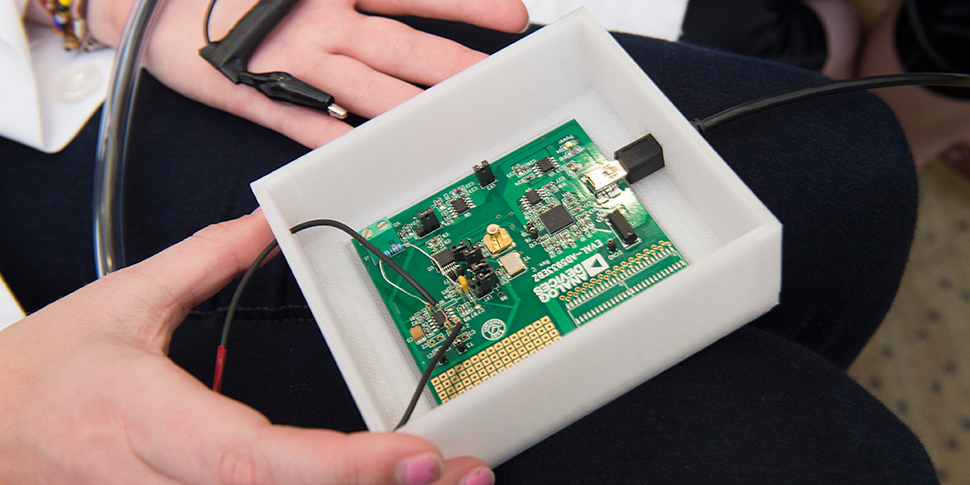A group of engineering students at Southern Methodist University has developed a small, inexpensive device that could help improve the lives of people with some of the world’s most-devastating neuromuscular diseases.
The portable bioelectric impedance analyzer is about the size of a slice of bread, is easy to assemble, and costs roughly $60 to buy.
THE DEVICE MEASURES ELECTRIC CURRENT
According to an article in SMU Magazine, the device could improve the lives of thousands of patients who have such diseases as Parkinson’s, multiple sclerosis, amyotrophic lateral sclerosis (ALS) and other neuromuscular diseases.
The device was developed by graduating seniors Taylor Barg, Allison Garcia, Danya Hoban, Mar McCreary, and Hyun Song, and it measures electric current pulsing through a patient’s body to assess muscle health.
“Our goal was to create an affordable, accessible device that was non-invasive and non-intimidating.”
Mar McCreary
The students have been working together on the analyzer since the beginning of the academic year as their senior design project in the Lyle School of Engineering at SMU, the article said.
“Our goal was to create an affordable, accessible device that was non-invasive and non-intimidating,” said McCreary, a mechanical engineering major with a premedical/biomedical specialization.
McCreary recently presented the group’s research at the 2017 HUNTALKS hosted by the Hunter and Stephanie Hunt Institute for Engineering and Humanity, which is a mechanism for student innovation with a social impact at the university.
There’s a number of health issues related to neurodegeneration in the aging population in the United States. McCreary pointed out that the mortality rate for Parkinson’s disease has increased 330 percent over the past 40 years.
To find out more about the device and the students who created it, go here.

The project team includes, standing, from left: Taylor Barg, faculty mentor Ahmet Can Sabuncu, Allison Garcia, Hyun Song; (seated) Danya Huban, and Mar McCreary [Photo Copyright SMU]






























